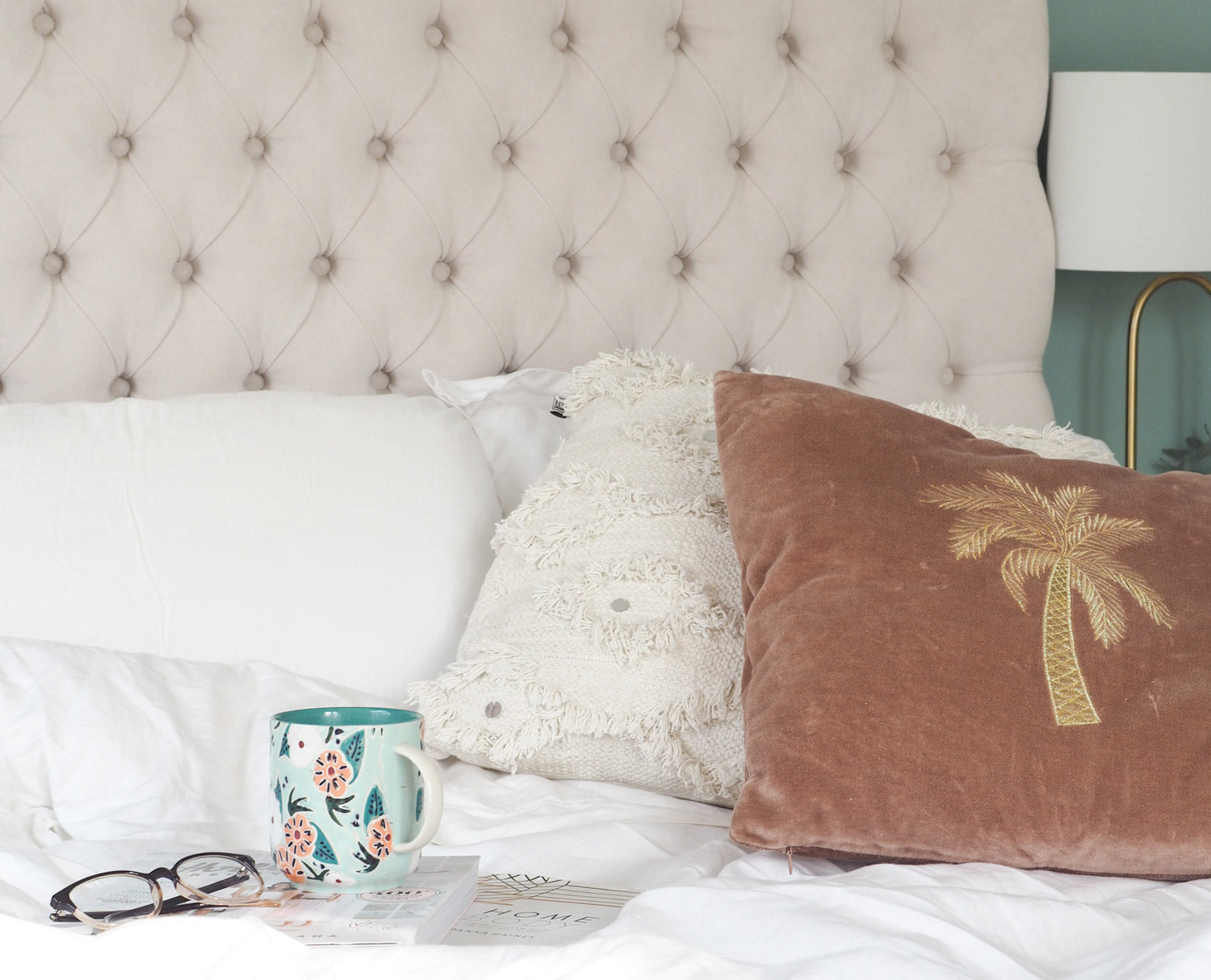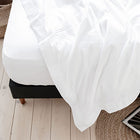
Why is it harder to sleep as we get older?
My mum says it takes her ages to get to sleep now that she's in her seventies. I've been wondering why it seems to be harder to get to sleep as people hit their sixties or seventies. Is it true that we need less sleep as we age or is this a myth? I've tried to find answers for all these tricky questions and more! Read on ...
- Our sleep patterns change as we get older, but why?
- Do we need less sleep as we get older?
- Sleep disturbances
- How to sleep better as you age
- Lightweight duvet benefits
- How to sleep well as we grow older
Our sleep patterns change as we get older, but why?
It can take longer to get to sleep and become harder to stay asleep through the whole night particularly after the age of 65. Our bodies produce less melatonin as we age, the hormone that induces sleep, and so we tend to spend increasing amount of time in the lighter stages of sleep and less time in deep sleep.
While we are asleep, our brains move through five different stages including periods of light sleep, deeper sleep and REM sleep. This sleep cycle occurs four to six times a night. More time spent in light sleep can result in repeated awakening during the night and a heightened awareness of feeling awake.
Do we need less sleep as we get older?
The amount of sleep we need remains the same throughout our adult lives, a regular 7 to 9 hours a night. As it can take longer to fall asleep as we get older though, we will probably need to spend more time in bed to get the required amount of sleep.
It's an undisputed fact that a good night’s sleep is essential for our health as this is when our body restores and repairs itself which helps to prevent disease; as well as performing memory consolidation and renewal, which improves our concentration and memory formation.
Sleep disturbances
It’s not just changing sleep patterns that can disturb our sleep as we get older, illness and medication can also prevent us from getting enough sleep. Common issues include discomfort or pain from a chronic illness, anxiety, restless leg syndrome, sleep apnea and the need to go to the loo (Nocturia). Many medicines that we may be required to take as we get older also have the unfortunate side effect of keeping us awake at night.
Lack of sleep as we age can lead to depression, attention and memory problems, an increased chance of nighttime falls and sometimes more serious health problems. So it is really important to focus on getting the right amount of sleep.
How to sleep better as you age
There are things we can do to improve our sleep, from changing our sleep environment and having healthier daytime habits, to modifying prescribed medications and addressing any emotional problems.
Here are some top tips:
- Keep a consistent sleep/wake schedule
- Set an alarm to go to bed
- Resist the urge to hit the snooze button
- Get the right bedding
- Take care of your bedding
- Go for a walk in the morning
- Get regular exercise each day
- Have the right bedroom temperature - 15C to 20C
- Only use the bedroom for sleep and relaxation
- Power down all devices an hour before bed
- Position your alarm clock so that you can't see the time
- Don’t drink caffeine or alcohol before bed
- Don’t smoke before bed
- Avoid going to bed hungry
- Avoid heavy meals when it’s late
- Skip the nap
- Develop a bedtime routine
See our blog on How to get a better night’s sleep for more detail.
Lightweight duvet benefits
A heavy duvet can hinder a good night’s sleep, particularly if you have restricted movement due to age or injury or you’ve recently had an operation. You will be much more comfortable with a lightweight duvet that doesn’t impede turning over in bed or weigh down on your limbs uncomfortably. Down-rich duvets are particularly lightweight and warm. The Scooms Hungarian goose down duvet provides the ideal warmth, the right weight and just enough drape to contour to your body.
Read more in our guide to Summer duvets.
How to sleep well as you grow older
Make it easier to get to sleep and to stay asleep for the whole night by:
- Being aware that you still need to get seven to nine hours of sleep a night.
- Taking extra steps to ensure that you do.
- Go to bed earlier.
- Improve your sleep environment.
- Pursue healthy daytime habits.







































